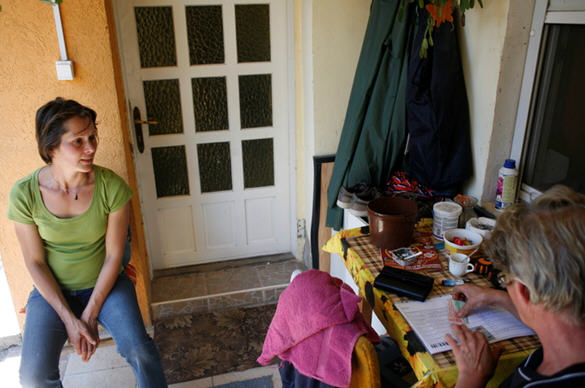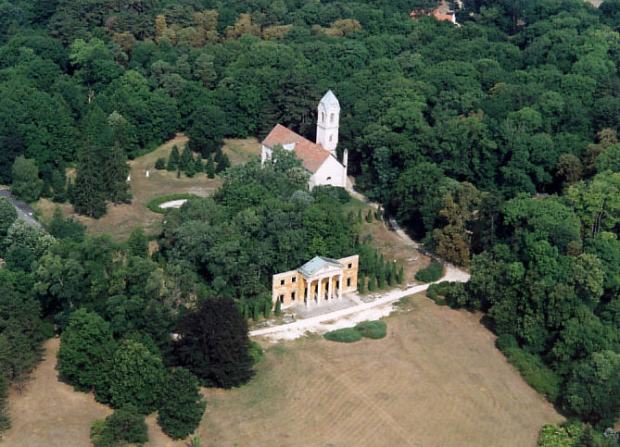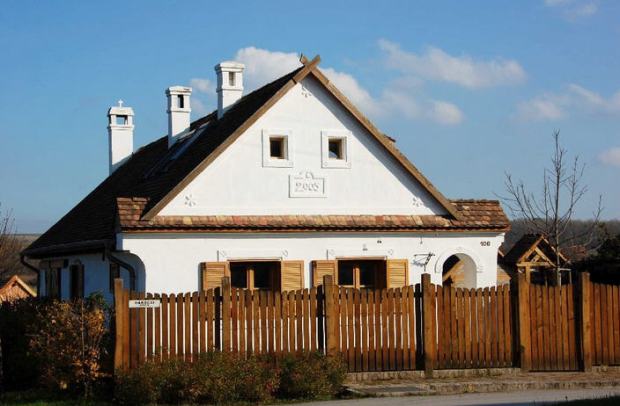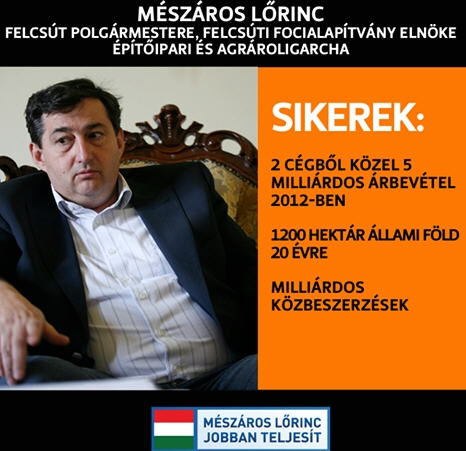I have collected an enormous database on Hungarian politics in the last few years, and my folder on Lőrinc Mészáros–businessman, mayor of Felcsút, and CEO of the Ferenc Puskás Academy–is bulging with articles. The very first one I kept was “Scandal in Felcsút,” which reported that Mészáros and his extended family had received more than 600 hectares of land in the village of Kajászó, 18 km from Felcsút, while none of the locals received even one cm².
Felcsút has come to symbolize everything that is rotten in Orbanistan. It is a typical Hungarian village with a population of about 3,000 where Hungary’s prime minister, who grew up there, first established a football academy because after all this is his hobby and then spent a great deal of money that should have gone into the general budget on a luxurious football stadium with a seating capacity of 3,500 right next door to his weekend house. As for Mészáros, the media became aware of his existence and importance only in the fall of 2010 when, as Orbán’s candidate for mayor of the village, he lost by a few votes against an independent candidate. The lord of Felcsút, Viktor Orbán, couldn’t live with such a situation, so his “friends” on the town council with the assistance of an amendment to the town’s electoral law disqualified Mészáros’s opponent. The election had to be repeated, and naturally Mészáros won.
Why is Lőrinc Mészáros so important to Viktor Orbán? This is what the Demokratikus Koalíció (DK) wanted to know this summer. Specifically, Zsolt Gréczy, the spokesman of the party, was interested in finding out how much of Mészáros’s by now fabulous wealth is his and how much of it actually belongs to Viktor Orbán. This is a legitimate question to which not only DK would like to have an answer. By now, I’m pretty certain that almost everybody who follows the news and is familiar with Lőrinc Mészáros’s name is convinced that the former pipe fitter is the prime minister’s front man or, in Hungarian/German, stróman/Strohmann. From owning a one-man car repair shop to being a billionaire in three years is no mean feat. Mészáros’s explanation is simple enough: he must attribute his financial success “to God, to luck, and to Viktor Orbán.” I think we can discard God from the equation and focus instead on the role of Viktor Orbán.
Mészáros and his wife established a company called Mészáros és Mészáros (M & M) in 2001, which was barely profitable until in 2011 government orders started pouring in. In 2010 the company grossed 900 million forints; by 2013 the dividends the couple received from their company totaled 1,266 billion forints. The business was flourishing: every year M & M doubled its revenues. In 2013 they took in 10 billion forints.
M & M is a construction business and Mészáros, the CEO of the Puskás Academy, couldn’t find a better company to build the new Pancho Stadium in Felcsút than–you guessed it–M & M. Such an arrangement couldn’t have been made without the blessing of Viktor Orbán, the true “owner” of that football academy as well as the stadium. After all, it was his foundation with his meager contribution of 100,000 forints more than a decade ago that created the whole complex in his childhood village.
The 600 hectares the Mészároses received–because the talented Mr. Mészáros is not only a politician, CEO of a soccer academy, and head of a construction company but a farmer as well–cost them nothing. Larger tracts of land owned by the state were leased to people with Fidesz connections. These parcels will most likely end up as the lessees’ very own after twenty years. In addition, the European Union farm subsidies afford the lessees a handsome yearly income. The extended Mészáros family was also the beneficiary of several tobacco concessions. Mészáros’s brother opened five tobacco shops in key locations: in District II in Budapest as well as in Szeged and Kecskemét.
In February of this year we learned about a 7.4 million forint government subsidy that Mészáros had received in 2013 for his pig farm. HVG claimed to know that Mészáros already had 1,000 pigs and that in fact he was selling pork to supermarket chains. The problem was that nary a single Mészáros pig could be found anywhere. The Agricultural Ministry normally gives farmers 2,150 forints per pig, which in Mészáros’s case would have assumed an animal farm of about 3,400 pigs. Needless to say, there were a lot of jokes about the lost pigs in the Hungarian media. Well, a month ago Mészáros’s mangalica farm was officially opened and the ribbon cut in Viktor Orbán’s presence. I have to assume that Mészáros received the 7.4 million forints before he had even one pig. Moreover, the farm he opened is capable of housing only 200 pigs. Something is very wrong here. As it usually is when it comes to Mészáros’s affairs.
Atlatszo.hu tried its best to find out the details of Mészáros’s finances. But although he as an elected official has to make a yearly financial statement which is public, the mayor of Felcsút refused to allow the investigative journalist Katalin Erdélyi to take a look at it. Eventually, however, Mészáros was forced to oblige. According to his statement, he had 400 million in the bank and 20 million in cash, he received 943 million in dividends from his various companies, and he owned a 2008 Audi 5. Details of his real estate holdings and yearly income can be seen on 444.hu.
A few days later, however, several internet sites reported that a few items were omitted from Mészáros’s financial statement. For example, a luxury villa with a spectacular view in Tihany. But that was nothing in comparison to the discovery by RTL Klub that Mészáros “forgot” to mention 1.27 billion forints worth of dividends in his latest financial statement. He himself phoned RTL Klub to “clarify” the situation.
Recall Bálint Magyar’s characterization of a “stróman” as someone who, instead of reinvesting his profits in his company, takes out enormous sums of money in the form of dividends. In such a case the real business of the company is money laundering.
Finally, during today’s demonstration Mészáros’s lost billions were held up as a symbol of Viktor Orbán’s regime. László Szily, the blogger of cink.hu, wrote an article a few days ago with the title “Let’s erect a statue to the lost one billion of Lőrinc Mészáros!” He began his piece with the following words: “The government hasn’t fallen yet and Viktor Orbán has not escaped yet in a second-class railroad carriage to Switzerland. But the regime has been seriously weakened and the Lőrinc Mészároses who have lost all sense of reality will be responsible if one day this regime is swept away by revolution.”










